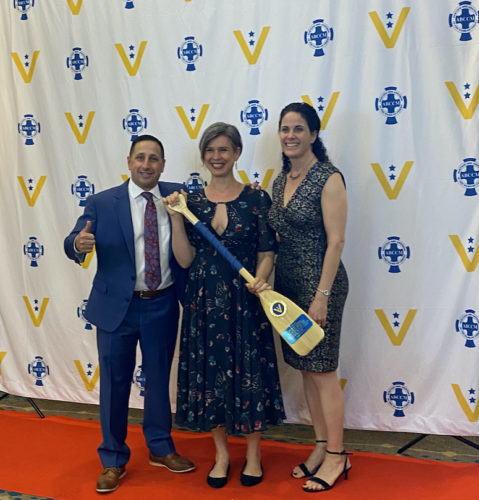Motivational Interviewing with Veterans

I just got back from an amazing time at a conference put on by the Veterans Services of the Carolinas, an organization MI Center for Change has provided training for for over 5 years. It has been such a delight to work with such heart-felt, hard-working case managers and peer support, to support the work THEY are doing to serve our Veteran families. So Veterans are on my mind today!
When I first began working with Veterans in 2007, I knew nothing about military culture.
Picture me then: cheerful, young, fresh out of school, eager to help. Naive.
Picture the Veterans I was ready to serve: reserved, private, stoic, self-sufficient, strong, reticent to ask for or receive help (especially mental health and substance use services!)…
A Veteran could assess me in a hot minute, decide I wasn’t one of them, and therefore not someone they could connect with or trust.
“What do you know about me?” “What do you know about war?” “You have never been through Basic [training] or served your country.”
It was true. If I tried to console them with my credentials, schooling, or desire to help, it only alienated me more.
I took my first training in Motivational Interviewing in 2008, and thank goodness I did. I learned that I didn’t have to go through what others had been through in order to be empathetic and build trust. I learned that by trying to ‘know’ and be an expert, I widened the chasm between us.
I learned I didn’t have to know everything about my clients’ lives in order to support them, because I didn’t have to have all of the answers for them.
Motivational Interviewing helped me connect with Veterans, as I practiced the spirit of MI through humility, empathy and curiosity.
I listened beneath their words, and kept it about them rather than me.
Reflective listening always helped when a Veteran would make a comment like, “You haven’t been through what I have, you can’t help me.”
Reflecting, “You don’t trust me yet,” might cause a Veteran to look up at me and agree.
And agreeing is a good place to start.
I might add, “You are right, I don’t know you and I don’t know what you have been through. There may be a point where you trust me, but it makes sense right now that you don’t.”
I stopped trying to prove I knew what they were going through, and instead truly listened.
I practiced statements that honored their independence and autonomy, such as, “This is your decision,” at any juncture where I sensed reticence.
I looked for and reflected their unique strengths and abilities, and helped them reconnect those experiences and strengths & apply them to what they are going through now.
I can’t even begin to go into all of the strengths and abilities of the Veterans among us! It is truly phenomenal. Our Veterans are phenomenal.

Brandon Wilson, Managing Director of Veteran Services of the Carolinas Hillary Bolter, CEO of MI Center for Change, MSW, LCSW, LCAS Chris Miles, Lead Trainer MI Center for Change, MSW, LCSW
(Here is a link to a free YouTube demo of a caseworker in Child Welfare utilizing MI with a Veteran client. There are three examples in the video. If you start at 31:19 you can watch just the example with a Veteran.)
Motivational Interviewing Tip of the Week: We don’t have to have had the same experiences as our clients to support them. Motivational Interviewing is incredibly helpful with special populations like Veterans, because it reminds us that in order to help others, we first have to connect, and in order to connect, we have to drop the expert role, honor their autonomy, strengths, get curious, and truly listen.
Related Posts

When in Doubt, REFLECT!
Training participants often name the helpfulness of practicing reflective listening. It reminds us to sit back, drop our shoulders, and just listen! It pulls us out of problem-solving, persuading, and arguing for change. When YOU are getting pulled into trying to...
Related Posts

5 Tips for working with the Precontemplative client!
The Precontemplative Conundrum!If you are like, “Precontem…what?” check out my blog post on Stages of Change here. In short, “precontemplation” refers to the stage of change when clients aren’t wanting to think or talk about change. They might even be arguing against...

Let’s Learn Together!
Hi, I’m Hillary Bolter. At MI Center for Change, Motivational Interviewing is our passion. Motivational Interviewing will help you become more effective and efficient as you support clients’ change!

